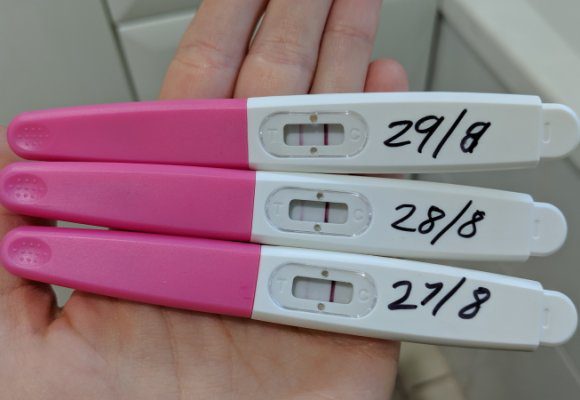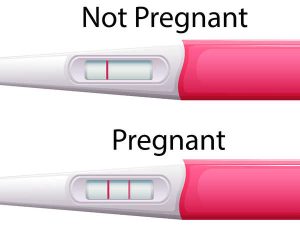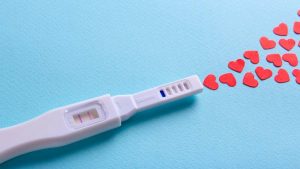Polycystic ovary syndrome (PCOS) is a common hormonal disorder that affects up to 10% of women of reproductive age. PCOS can cause irregular or absent periods, excess hair growth, acne, weight gain, and infertility. One of the main challenges for women with PCOS who want to conceive is knowing when they are ovulating, or releasing an egg from their ovaries.
Ovulation is the most fertile time of the menstrual cycle, and it usually occurs around 14 days before the next period. However, women with PCOS may have unpredictable or long cycles, or they may not ovulate at all. This can make it hard to plan intercourse or use assisted reproductive technologies (ART) such as intrauterine insemination (IUI) or in vitro fertilization (IVF).
Fortunately, some at-home fertility test kits can help women with PCOS track their ovulation and increase their chances of getting pregnant. These kits measure different hormones in the urine or saliva that change during the cycle and indicate when ovulation is approaching or has occurred.
Here are some of the most common types of fertility test kits and how they can help women with PCOS:
– Ovulation predictor kits (OPKs). These kits measure luteinizing hormone (LH) in the urine, which surges about 24 to 36 hours before ovulation. OPKs can help women with PCOS identify their fertile window and time intercourse accordingly. However, some women with PCOS may have high or multiple LH peaks throughout their cycle, which can make OPKs less reliable or confusing to interpret. It is important to use OPKs along with other signs of ovulation, such as basal body temperature (BBT) and cervical mucus.
– Fertility monitors. These devices are similar to OPKs, but they also measure estrogen levels in the urine or saliva, which rise before the LH surge. Fertility monitors can provide more information about the cycle and detect more fertile days than OPKs alone. Some fertility monitors can also store data and track patterns over time, which can help women with PCOS understand their cycles better and plan ahead for ART.
– Hormone test kits. These kits measure multiple hormones in the blood, such as follicle-stimulating hormone (FSH), estradiol, thyroid-stimulating hormone (TSH), and testosterone. Hormone test kits can help women with PCOS diagnose their condition and identify any hormonal imbalances that may affect their fertility. Hormone test kits can also help women with PCOS monitor their response to treatments such as metformin, clomiphene citrate, or gonadotropins.
Fertility test kits can be a useful tool for women with PCOS who want to conceive, but they are not a substitute for medical advice. Women with PCOS should consult their doctor before using any fertility test kits and follow their recommendations for testing frequency and timing. Fertility test kits can also be expensive and not covered by insurance, so it is important to compare prices and features before buying.
Fertility test kits can help women with PCOS gain more insight into their ovulation and hormone levels, which can improve their chances of getting pregnant. However, fertility test kits are not a magic solution and they may not work for everyone. Women with PCOS should also adopt a healthy lifestyle, manage their weight, and seek professional guidance to optimize their fertility and overall health.





